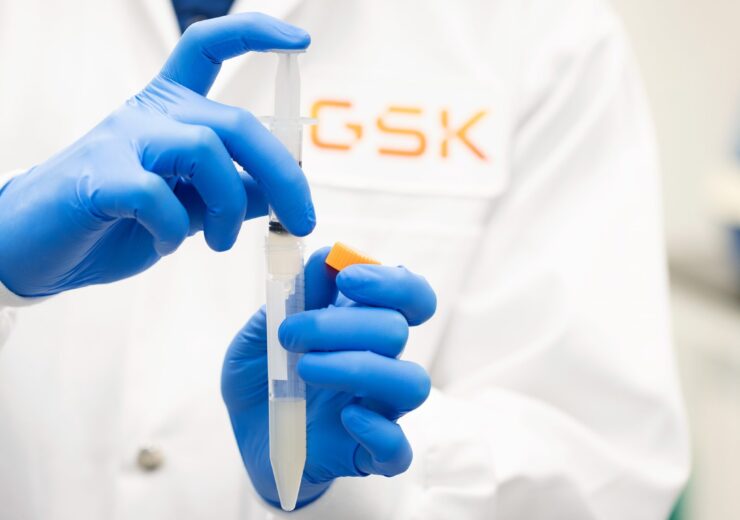The late-stage trial assessed the combination against placebo plus chemotherapy followed by placebo and the combination met the primary endpoint of progression-free survival

GSK’s Jemperli combination showed positive results in late-stage trial. (Credit: GSK plc)
GSK said that the Jemperli (dostarlimab) plus Zejula (niraparib) combination significantly improved progression-free survival (PFS) in adult patients with primary advanced or recurrent endometrial cancer in the RUBY Part 2 Phase III trial.
Jemperli is an antibody that blocks programmed death receptor-1 (PD-1). It is designed to bind to the PD-1 receptor and inhibit its interaction with the PD-1 ligands PD-L1 and PD-L2.
Zejula is an oral, once-daily poly (ADP-ribose) polymerase (PARP) inhibitor.
The planned analysis of the RUBY Part 2 study evaluated Jemperli plus standard-of-care chemotherapy (carboplatin and paclitaxel), followed by dostarlimab plus niraparib as maintenance therapy.
The late-stage trial assessed this combination against placebo plus chemotherapy followed by placebo.
According to the positive headline results, the combination met its primary endpoint of PFS.
It also showed a statistically significant and clinically meaningful benefit in both the overall patient population and in a subpopulation of patients with mismatch repair proficient/microsatellite stable (MMRp/MSS) tumours.
Dostarlimab plus paclitaxel, then dostarlimab plus niraparib, demonstrated a safety profile that was much in line with the established safety profiles of each of the individual drugs.
GSK R&D oncology global head and senior vice president Hesham Abdullah said: “Patients with MMRp/MSS primary advanced or recurrent endometrial cancer have few approved treatment options.
“Today’s positive topline results reinforce our approach of building combination therapies with dostarlimab as the backbone in an effort to improve patient outcomes and options.”
RUBY is a two-part global, randomised, double-blind, multicentre Phase III trial of patients with primary advanced or recurrent endometrial cancer.
Additional secondary endpoints in Part 1 and Part 2 consist of PFS per blinded independent central review, overall response rate, the durability of response, disease control rate, patient-reported outcomes, safety and tolerability.
The whole study data, including overall survival (OS), a key secondary endpoint, are still being analysed. OS data is immature and will continue to be monitored.
The British drug maker will share the complete findings of this trial with regulatory agencies soon.
